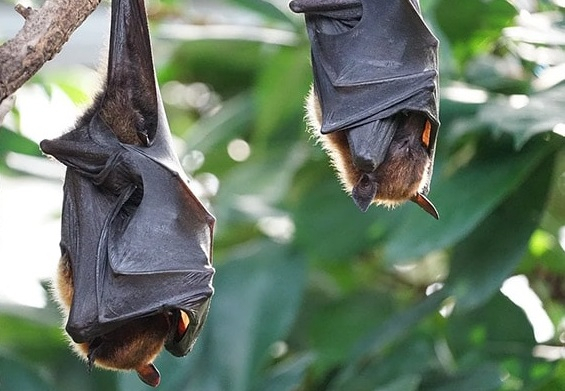A new coronavirus has been found in bats in Russia. The virus harbored by Russian horseshoe bats can easily evade COVID-19 vaccines and infect humans, according to US researchers. The virus named Khosta-2 is of the same sub-category of coronavirus as SARS CoV-2.
By using its spike proteins, Khosta-2 can infect human cells very much like SARS-CoV-2 does, according to a team led by researchers at the Paul G. Allen School for Global Health at Washington State University (WSU).

Khosta-2 Poses Threat To Human
Sarbecoviruses circulating in wildlife outside of Asia – even in places like western Russia where the Khosta-2 virus was found – also pose a threat to global health and ongoing vaccine campaigns against SARS-CoV-2, according to Michael Letko, a virologist at WSU and corresponding author of the study.
Khosta-2 Can Evade COVID-19 Vaccines
The study stresses the urgency to develop new vaccines that can protect against all Sarbecoviruses not only being limited to different variants of SARS-CoV-2 such as Omicron.
Among the hundreds of Sarbecoviruses discovered in recent years, most have been found in Asian bats and are not capable of infecting human cells. The Khosta-1 and Khosta-2 viruses were discovered in bats near Russia's Sochi National Park in 2020, and it initially appeared they were not a threat to humans, according to the study's authors, reported Euro News.
Khosta-2 Can Be More Dangerous If It Recombines With A Second Virus
Highlighting that genetically these weird Russian viruses looked like some others that had been discovered elsewhere around the world, Letko stated that because they didn't look like SARS-CoV-2 no one even considered that these could pose a severe risk for humans.
"But when we looked at them more, we were really surprised to find they could infect human cells. That changes a little bit of our understanding of these viruses, where they come from and what regions are concerning," said Letiko, according to Euro News.
However, researchers believe that Khosta-2 lacks some genetic features that antagonize the immune system and lead to many diseases. Although, experts believe that it can be more dangerous if it recombines with a second virus such as SARS-CoV-2.
Read more








